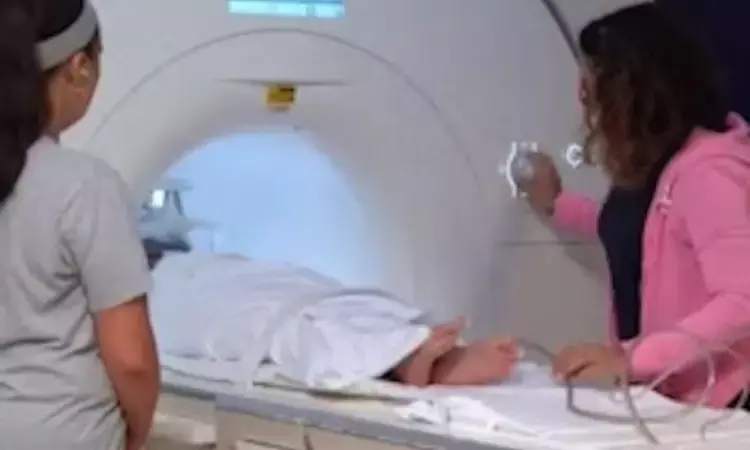- Home
- Medical news & Guidelines
- Anesthesiology
- Cardiology and CTVS
- Critical Care
- Dentistry
- Dermatology
- Diabetes and Endocrinology
- ENT
- Gastroenterology
- Medicine
- Nephrology
- Neurology
- Obstretics-Gynaecology
- Oncology
- Ophthalmology
- Orthopaedics
- Pediatrics-Neonatology
- Psychiatry
- Pulmonology
- Radiology
- Surgery
- Urology
- Laboratory Medicine
- Diet
- Nursing
- Paramedical
- Physiotherapy
- Health news
- Fact Check
- Bone Health Fact Check
- Brain Health Fact Check
- Cancer Related Fact Check
- Child Care Fact Check
- Dental and oral health fact check
- Diabetes and metabolic health fact check
- Diet and Nutrition Fact Check
- Eye and ENT Care Fact Check
- Fitness fact check
- Gut health fact check
- Heart health fact check
- Kidney health fact check
- Medical education fact check
- Men's health fact check
- Respiratory fact check
- Skin and hair care fact check
- Vaccine and Immunization fact check
- Women's health fact check
- AYUSH
- State News
- Andaman and Nicobar Islands
- Andhra Pradesh
- Arunachal Pradesh
- Assam
- Bihar
- Chandigarh
- Chattisgarh
- Dadra and Nagar Haveli
- Daman and Diu
- Delhi
- Goa
- Gujarat
- Haryana
- Himachal Pradesh
- Jammu & Kashmir
- Jharkhand
- Karnataka
- Kerala
- Ladakh
- Lakshadweep
- Madhya Pradesh
- Maharashtra
- Manipur
- Meghalaya
- Mizoram
- Nagaland
- Odisha
- Puducherry
- Punjab
- Rajasthan
- Sikkim
- Tamil Nadu
- Telangana
- Tripura
- Uttar Pradesh
- Uttrakhand
- West Bengal
- Medical Education
- Industry
Contrast agent use not necessary in PET/MRI scans in children with lymphoma: Study

Germany: A recent study has provided a scientific baseline for choosing F-18 FDG-PET/MRI scans without the use of a contrast agent for imaging children suffering from lymphoma. This could do away with the side effects of contrast agents and save costs and time by a faster staging protocol for pediatric patients.
The findings were presented at the Radiological Society of North America (RSNA) annual meeting in Chicago and subsequently published in European Radiology.
In the scientific session held on November 30, Nils-Martin Bruckmann, University Dusseldorf, Dusseldorf, Germany, and colleagues discussed a study that evaluated the influence of an MRI contrast agent application on primary and follow-up staging in pediatric patients with newly diagnosed lymphoma using [18F]FDG PET/MRI to save time and costs and avoid adverse effects during examination. They found the contrast agent made no diagnostic difference.
Lymphomas account for about 15% of all tumor diseases in children and imaging plays a critical role in tumor staging to plan treatments. While contrast agents used in F-18 FDG-PET/MRI scans can help improve image quality, they are associated with adverse events, such as allergic reactions that are especially concerning in sensitive pediatric patients.
To provide evidence on whether the use of these agents is necessary in children, the research team enrolled a cohort of 32 pediatric patients (7-20 years of age) who underwent 105 scans with and without contrast agents. Lymphoma was present in 62 % of examinations.
Patients underwent either F-18 FDG-PET/MRI scans comprising unenhanced T2-weighted and/or T1-weighted and diffusion-weighted imaging (PET/MRI-1) or PET/MRI scans comprising an additional contrast-enhanced T1w sequence (PET/MRI-2).
All datasets were analyzed by two expert readers at a region-based and patient-based level, with follow-up and prior examinations, and histopathology serving as the reference standard.
The researchers revealed the following findings:
- In patient-based analysis, PET/MRI-1 and PET/MRI-2 both determined a correct IPNHLSS tumour stage in 86% of the exams.
- The region-based analysis correctly identified 94% of lymphoma-affected regions.
- Sensitivity, specificity, positive predictive value, negative predictive value, and diagnostic accuracy for PET/MRI-1 and PET/MRI-2 were 94%, 97%, 90%, 99%, and 97%, respectively.
- There were no significant differences between PET/MRI-1 and PET/MRI-2.
F-18 FDG-PET/MRI is increasingly accepted for staging of lymphoma patients and the study further confirms its high diagnostic accuracy and feasibility in pediatric lymphoma patients.
"Using MRI contrast agents in F-18 FDG-PET/MRI examinations has no additional positive benefit for primary and follow-up staging of pediatric patients with lymphoma," the researchers wrote.
"The switch to a contrast agent-free F-18 FDG-PET/MRI protocol should additionally be discussed in all pediatric lymphoma patients,” they concluded.
Reference:
Jannusch K, Morawitz J, Schweiger B, Weiss D, Schimmöller L, Minko P, Herrmann K, Fendler WP, Quick HH, Antoch G, Umutlu L, Kirchner J, Bruckmann NM. [18F]FDG PET/MRI in children suffering from lymphoma: does MRI contrast media make a difference? Eur Radiol. 2023 Nov;33(11):8366-8375. doi: 10.1007/s00330-023-09840-5. Epub 2023 Jun 20. PMID: 37338559; PMCID: PMC10598113.
Dr Kamal Kant Kohli-MBBS, DTCD- a chest specialist with more than 30 years of practice and a flair for writing clinical articles, Dr Kamal Kant Kohli joined Medical Dialogues as a Chief Editor of Medical News. Besides writing articles, as an editor, he proofreads and verifies all the medical content published on Medical Dialogues including those coming from journals, studies,medical conferences,guidelines etc. Email: drkohli@medicaldialogues.in. Contact no. 011-43720751


